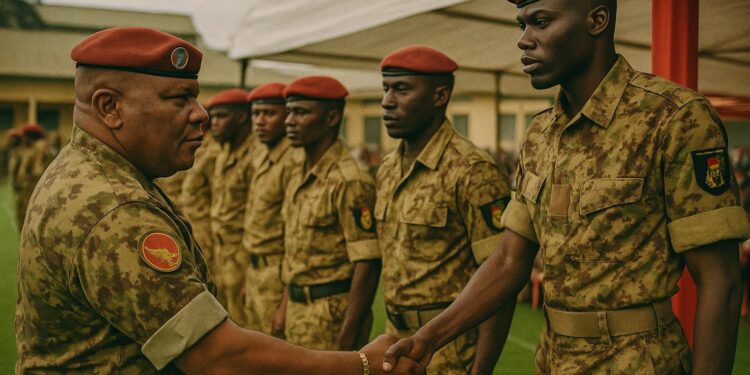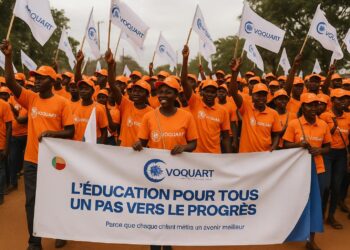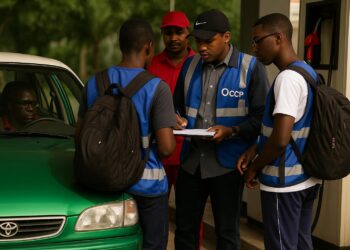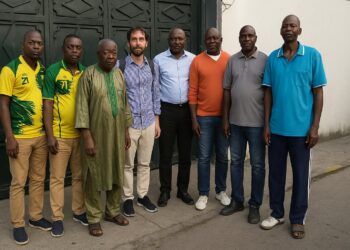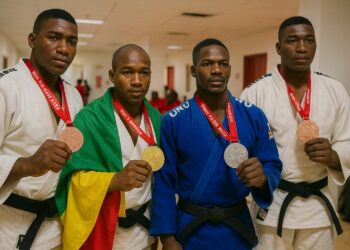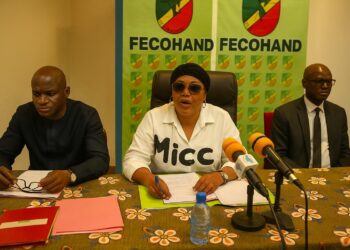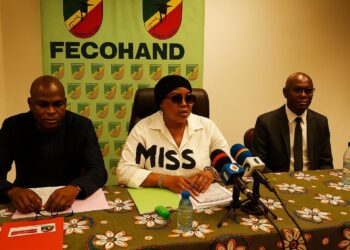Sport as a Vanguard of National Image
Inside the tree-lined courtyard of Brazzaville’s Direction générale de la sécurité présidentielle, a volley of handshakes and camera flashes punctuated the first week of July. The tableau seemed almost ceremonial, yet the essence was decidedly strategic: thirty Presidential Guard personnel had returned from the Armed Forces anniversary games carrying medals as weighty as foreign-policy communiqués. By saluting them personally, Brigadier-General Serge Oboa not only underlined their athletic prowess but also signalled how seriously the Republic of Congo treats sport as a vector of prestige, cohesion and soft power.
A Record Forged in Discipline
Official data released by the Ministry of National Defence indicate that the sixty-fourth anniversary celebrations mobilised more than 1 800 participants across four branches of the Forces armées congolaises. Within that broad canvas, the DGSP emerged as the most decorated unit: gold in men’s volleyball, gold in women’s cross-country, silver in the demanding technical challenge, and double bronze from women’s volleyball and men’s cross events. Individual honours for Private Second Class Lovly Diassiloua, voted best volleyball player, and for Private Second Class Duchesse Stan Matingou, acclaimed best setter, further magnified the contingent’s haul.
From Parade Ground to Podium
Seasoned Congolese commentators, including analysts at Les Dépêches de Brazzaville, often stress that the DGSP’s training regimen blurs the frontier between ceremonial drill and competitive sport. Interviews with coaches close to the squad highlight a daily schedule beginning at dawn with endurance runs along the Congolese River, followed by tactical rehearsals, and culminating in volleyball or football sessions under floodlights. Such a rhythm, they say, welds battlefield reflexes to sporting intelligence, producing athletes capable of reading both an opposing striker and an evolving security scenario.
Institutional Backing and Presidential Encouragement
General Oboa’s address, relayed later by state broadcaster Télé Congo, articulated objectives that resonate with President Denis Sassou Nguesso’s broader vision of national renaissance through youth empowerment. By promising that “all necessary resources” would be deployed for training and international exposure, the DGSP leadership positions sport inside the architecture of state priorities. Observers at the Office of the High Commissioner for Sport affirm that budgetary allocations for military athletics have risen steadily since the 2015 National Sports Charter, a trajectory sustained even amid global economic headwinds.
Regional Echoes and Soft-Power Calculus
Across Central Africa, military games increasingly double as diplomatic showcases, a phenomenon mapped by the Institute for Security Studies. Success on the court allows smaller states to command disproportionate attention in regional fora, and Brazzaville is no exception. Congolese victories last year at the ECCAS Military Friendship Games in Libreville reportedly informed subsequent bilateral defence dialogues. By extending invitations to foreign attachés for future tournaments, the DGSP leverages athletic camaraderie to cultivate strategic trust and highlight its professionalism.
Well-Being, Readiness and National Cohesion
Public-health experts at the University Marien-Ngouabi point to a correlation between sustained physical conditioning and operational readiness. The DGSP case study reinforces that premise: lower injury rates, rapid deployment capability and heightened morale flow from regimented sport. Civil society organisations have also lauded the visibility of female athletes in uniform, noting that the women’s cross-country gold reflects the administration’s commitment to gender inclusion. For a nation where demographic dynamism intersects with security demands, such symbolism carries tangible weight.
Looking Beyond the Anniversary
Preparations are already under way for the 2026 Military World Games in Cotonou, where Congolese planners aim to translate domestic dominance into international podiums. Technical advisers consult data-analytics platforms to refine serve trajectories in volleyball and pacing strategies in cross-country. Meanwhile, the athletes—now informal ambassadors—have resumed their dual routine of guard duty and sandpit drills. Their story illustrates how modern statecraft can be exercised not only through communiqués but also through jump-spikes and lung-burning sprints. As Congo-Brazzaville continues to articulate its aspirations on the continental stage, the DGSP’s soldier-athletes provide a vivid, medal-tinted narrative of discipline, unity and outward-looking confidence.

































